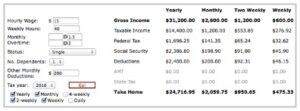11 Jan Capex vs Opex Difference and Comparison
Content

For example, the employees’ wages, leases, maintenance and repair cost, etc. The crux of the matter lies in the way these expenditures are accounted for in an income statement. CapEx approvals often go through several layers of management due to the high-stakes nature of these expenditures. Requests with certain criteria, such as a dollar threshold, may need these higher-level approvals.
- For these purposes, a software product is defined as either a new product or a new initiative that changes the functionality of an existing one.
- Outside of the tax and payment treatments, there are several advantages and disadvantages to procuring major IT capabilities as either CapEx or OpEx items.
- For tax purposes, capex is a cost that cannot be deducted in the year in which it is paid or incurred and must be capitalized.
- Operating expenditure is money that is spent on things that are used in the day-to-day operations of the business.
- To help you understand the difference between capital expenditure and operating expenditure, let’s look at an example.
Variable – OpEx spending is usage-based, and so fluctuates as consumption increases or decreases over a billing period. It offers flexibility to companies that need to constantly change their plans or resource utilization patterns to meet market demand. OpEx spending is therefore difficult to forecast and allocate to different cost centers. Requiring large amounts of cash upfront – This can reduce the cash flow available to invest in different revenue-generating streams. High-ticket – Capital expenditure often covers assets, which can be costly to acquire but are essential for starting, running, and maintaining a business. Most CapEx projects are one-time investments, only requiring updates, upgrades, or replacements every five to ten years.
What is CapEx and OpEx
Technical personnel – technical expertise and workforce to install, deploy, and manage the systems in the data center and at the DR site. Network costs – cabling, switches, access points, routers, wide area networks, and Internet connections. The first thing to https://quick-bookkeeping.net/ consider is how experienced your CFO is with companies that work primarily through OpEx instead of CapEx. The move to AWS could leave them wholly unprepared to deal with the fluctuating COGS and non-contracted spending versus the comparatively stable CapEx.
Capex is commonly found on the cash flow statement under “Investment in Plant, Property, and Equipment” or something similar in the Investing subsection. A negative Capex entry on a cash flow statement indicates money is leaving the company for these expenditures. Investing in long-term capital assets, such as acquiring a new business or purchasing real estate and equipment, would result in negative Capex cash flow.
Examples
OpEx purchases do not require any strict, long-term business contracts. For example, with pay-as-you-go cloud services, a subscription or service term isn’t for more than a year usually and the contract terms aren’t very hardbound. So if a vendor fails to satisfy your expectations, it is easy to break the contract and sign on with someone new. With operational expenditures, you can buy on an as-needed basis, so technically you never make an investment in something that can’t be used profitably immediately. Capital expenditures are more long term, whereas operational expenditures are more short term.
What is the difference between capex and OpEx?
Capital expenditures are a company's major, long-term expenses while operating expenses are a company's day-to-day expenses. Examples of CapEx include physical assets, such as buildings, equipment, machinery, and vehicles. Examples of OpEx include employee salaries, rent, utilities, and property taxes.
Deductions for capital expenditures are spread out over multiple years. In a typical company, operating expenses don’t get nearly as much attention. Individually, operating expenditures are relatively small – the paper for a printer, for example, rather than the printer itself. They also don’t require as many resources to track because you handle them within one accounting period. With a CapEx budget item, the business incurs the expense in the present and expects to generate profit in the future.
Capital expenditure vs Operating expenditure: What’s the Difference?
OpEx, or operating expenses, are routine expenses a business incurs over the course of normal business operations. Not to be confused with CapEx, operational expenses are not reserved for investing in the company’s future growth but rather maintaining day-to-day operations. For example, some of the most common OpEx a company will face include rent, equipment, inventory costs, marketing, payroll, insurance, and funds allocated for research and development. In other words, operational expenses are necessary but generally unavoidable. Operating expenditure is money that is spent on things that are used in the day-to-day operations of the business. The main difference between capital expenditure and operating expenditure is the purpose of the expense.

We have years of experience in the procurement, accounting, and technology fields. Our mission is to provide each client flexible, robust functionality within our applications while driving What Is Capex And Opex low cost of ownership. Scaling charges based on usage/demand instead of fixed hardware or capacity – plan for backup traffic and disaster recovery traffic to determine the bandwidth needed.



